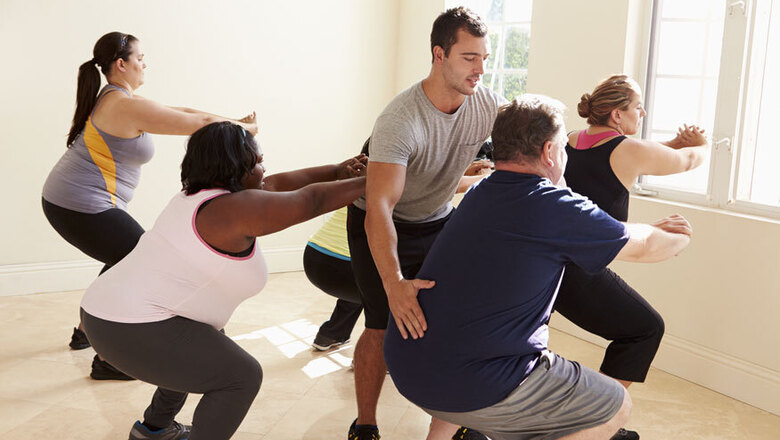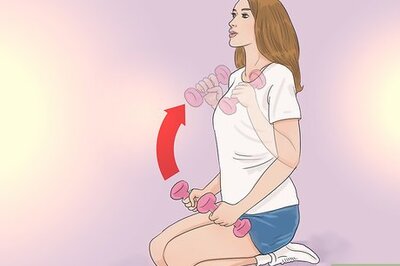
views
If you prefer working out with friends, new US research may have one of the reasons why. It shows that working out in a group lowers stress and significantly improves quality of life more than working out alone.
Carried out by a team from the University of New England College of Osteopathic Medicine, the researchers recruited 69 medical students for the study -- a group known for high levels of stress and self-reported low quality of life.
The participants were allowed to choose a twelve-week exercise program, either working out in a group setting or as individuals.
Twenty-five participants chose to work out in the group setting, which involved 30 minutes of group exercise at least once a week in CXWORX, a core strengthening and functional fitness training program.
Another 29 chose to work out alone or with no more than two partners, but were allowed to follow any exercise regimen they liked, which could include activities like running and weight lifting.
A group of 15 participants were asked to not partake in any exercise at all, other than walking or biking as a means of transport, to act as a control group.
Every four weeks, all participants completed a survey asking them to rate their levels of perceived stress and quality of life in three categories: mental, physical and emotional.
The results showed that those who worked out in a group benefited from a 26 percent decrease in perceived stress levels, and improvements in mental (12.6 percent), physical (24.8 percent) and emotional (26 percent) quality of life.
Although those who exercised individually put in more effort, working out for twice as long, they experienced no significant changes in their stress level and a limited improvement to quality of life, showing only an 11 percent increase in mental quality of life.
Similarly, the control group saw no significant changes in quality of life or perceived stress.
"The communal benefits of coming together with friends and colleagues, and doing something difficult, while encouraging one another, pays dividends beyond exercising alone," said Dayna Yorks, DO, lead researcher on this study. "The findings support the concept of a mental, physical and emotional approach to health that is necessary for student doctors and physicians."
The findings can be accessed online in The Journal of the American Osteopathic Association.




















Comments
0 comment